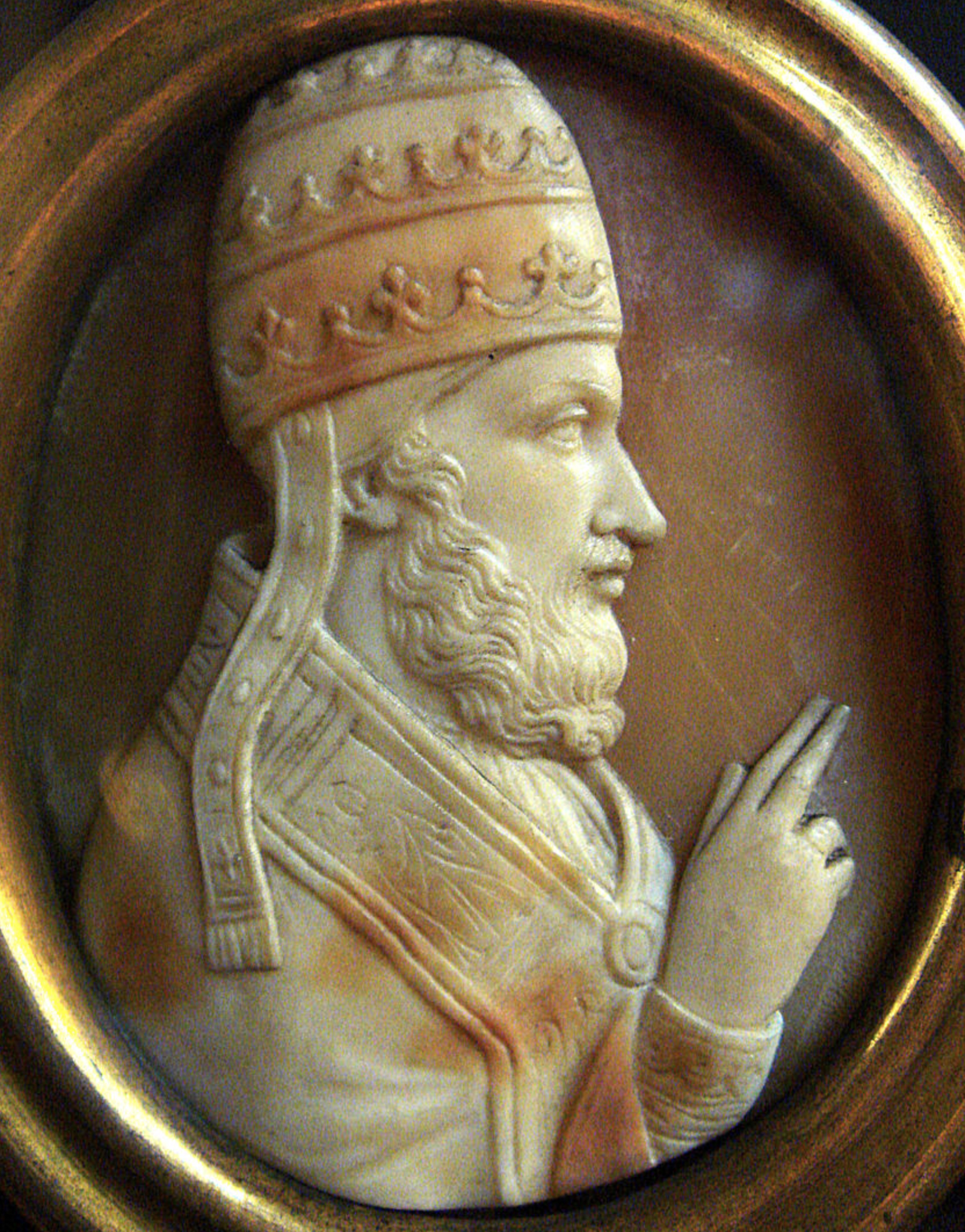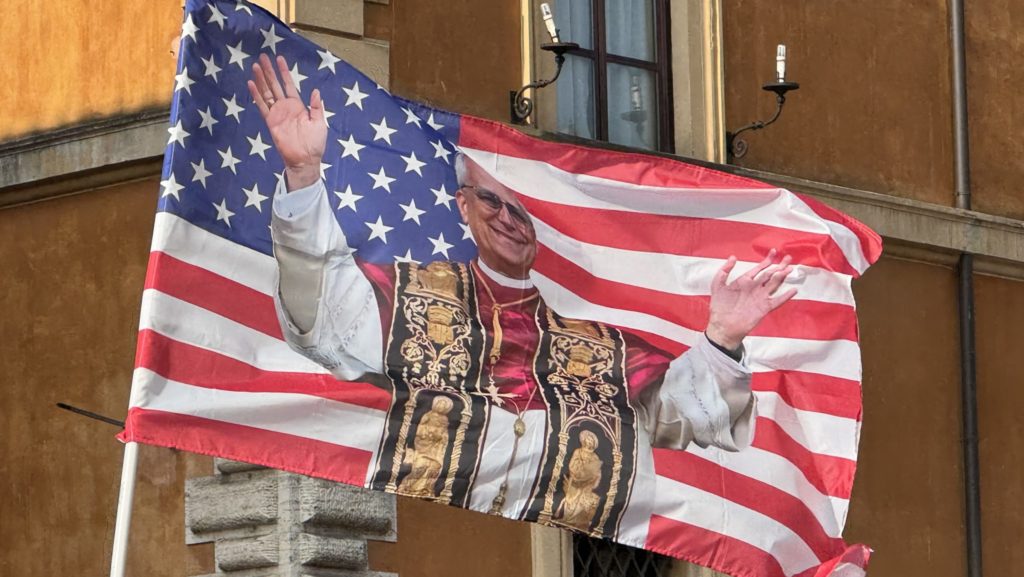ROME — When history’s first — and, for almost nine centuries, the only — native English-speaking pope ascended to the Throne of Peter in 1154, his linguistic background did not afford Pope Adrian IV anything like the perceived advantage that today it bestows upon Pope Leo XIV.
For one thing, that’s because the English of Nicholas Breakspear, the given name of Adrian IV, would be largely unrecognizable to speakers of the language today. In the 12th century, it was undergoing a transition from Old English to Middle English — or, to use the best-known examples of each, from the English of Beowulf to that of Chaucer.
Not only would that make Adrian’s English seem like gibberish to most contemporary speakers of the language, it also means that even some of his fellow English-speakers in the 12th century might have had a hard time understanding him, depending on where each person was on the transitional arc from one version of the language to another.
More basically, however, speaking English did Pope Adrian IV no big favors because English in the 12th century was not at all the global colossus it’s become today. Back then, it was spoken almost exclusively by the English, a population at the time likely not in excess of 3 to 5 million people.
Today English is by far the most spoken language in the world, with a total of 1.5 billion speakers, more than 1 billion of whom speak it as a second language. Add to that another at least half-billion people who have at least some command of English vocabulary, grammar, and sentence structure, and that’s 25% of the world’s population that can make its way in the English language.
Neither of the next two languages on the list, Mandarin and Hindi, crack a billion speakers, and both are geographically confined. You have to get down to Spanish, in fourth place with 560 million speakers, to find another language that’s truly global, but it obviously doesn’t have the numbers of English.
English today is the language of global finance and commerce, culture, the arts, media and communications, and geopolitics. When Volodymyr Zelensky and Donald Trump had that now famous tête-à-tête in St. Peter’s Basilica after Pope Francis’ funeral, their common knowledge of English allowed them to speak without interpreters. English also rules on the internet, with 52% of all websites using it for their content.
You would think, therefore, that being a native English speaker today would give any world leader — and perhaps especially a pope, who has to communicate with the entire planet — a massive home-court advantage.
Yet an episode from the pontificate of Adrian IV suggests a note of caution.
Even if speaking English wasn’t terribly helpful to Adrian IV, he was fluent in the language which was the closest thing his era had, which was Latin. Granted, the main difference is that today English is spoken by the global masses, while in the 12th century it was familiar only to a narrow band of European elites. Still, it was the common language of the clergy, intellectuals, and government, and his capacity in it ought to have served Adrian well.

That brings us to the so-called “translation problem” of 1157, which came in a letter from Adrian to Frederick Barbarossa, the Holy Roman Emperor, whom Adrian himself had (reluctantly) crowned just two years before.
The content of the letter concerned the pope’s complaint that Frederick had not moved quickly enough to capture and punish the killers of Archbishop Eskil of Lund in Sweden, who had been slain while traveling through Germanic lands. No one had been captured for the crime, and Adrian was pushing for swift justice.
(No doubt Adrian had a soft spot in his heart for Eskil, since earlier in his career Breakspear had been dispatched as a papal legate to Scandinavia and, by all accounts, acquitted himself extremely well, so much so that one Scandinavian chronicler referred to him as a “saint” and another dubbed Breakspear the “apostle of the north.”)
To begin with, the letter irritated Frederick because the two cardinal couriers carrying it reached him while he was celebrating his wedding in Besançon in the northeastern corner of France near Switzerland. Yet the interruption might have been forgiven, and even the pope’s request taken as reasonable, were it not for a particular word choice in the letter’s prologue.
There, Adrian IV referred to the empire as a beneficium, a term which in the Latin of the 12th century could mean three distinct things:
- In feudal terms, it referred to a fief, meaning property or other rights granted to a vassal by an overlord.
- Ecclesiastically, it referred to a benefice, meaning an office or other privilege granted either by the crown or by Church officials.
- Etymologically, the word beneficium is composed of the root words bene, “good,” and fare, “to do,” and could be used simply to mean something done for good or noble purposes.
Alas, Adrian did not make clear which of these senses he had in mind, which allowed Frederick’s courtiers to suggest he meant the first, feudal sense of the term, and had in effect just called the emperor a vassal of the pope. In the context of a European political scene in which the embers of the Investiture Controversy were still smoldering, this was, to use a much later English expression, fightin’ words.
(Frederick, though fluent in spoken German and some French, was illiterate, so all documents had to be translated by his aides and then read aloud before he could comprehend them.)
Despite later attempts to smooth things over, the word choice was taken as a deliberate provocation by Frederick and began a process of deteriorating relations between Church and empire that culminated in a 22-year schism after Adrian’s death, with rival claimants to the papacy backed by loyalists to Adrian and supporters of the emperor.
In other words, Adrian’s fluency in the common language of his day didn’t save him from a serious error in judgment — after all, if all he meant was that the empire was a good deed, which was his later assertion, he could have found less ambiguous ways of saying so.
Pari passu (equal footing), Leo’s mastery of English, however powerful a communications tool it may be, won’t necessarily save him from putting his foot in his mouth either.
For that, what’s required instead are patience, sound judgment, and restraint — qualities which, thankfully, Leo seems to possess in spades.

